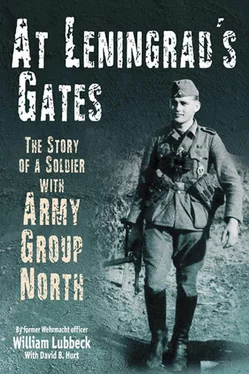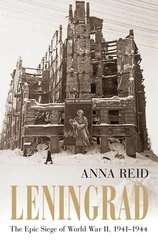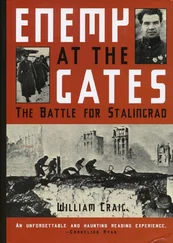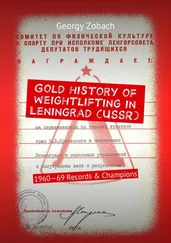The school offered more engaging give-and-take discussions between the instructors and students, but my academic struggles persisted. A couple of times, my parents had to read me the riot act when I received a note from the school informing them that I was not doing well in my classes. Such letters bothered me deeply because of my parents’ disappointment, but my performance never greatly improved.
It was rare for children from Püggen to attend the school in Beetzendorf. Children were only required to attend school through the eighth grade and most either apprenticed to learn a trade or began working full-time on a farm or in some other employment after that. As part of an extended family that included teachers, doctors, and lawyers, my parents perhaps placed a higher value on education than most other families in our farming community. This commitment was also demonstrated by my father’s willingness to pay my tuition in the midst of the Depression.
When outside the school buildings during recreation periods or after class, the boys would wear caps with colored bands identifying their class year. While discipline was strictly enforced inside the school building, there were occasional full-scale brawls right behind it. Typically, these slugfests resulted from disputes among boys of different class years or from different villages around Beetzendorf. In one instance when another student began calling me names, I engaged in one of these fistfights, but I generally tried to avoid such crude behavior.
On most days, I rode my bike straight home, where I would work on my homework assignments and help out around the farm. Despite the many hours spent completing my farm chores and schoolwork, I generally enjoyed a carefree youth and often found time to pursue other interests and activities.
Probably more curious and adventurous than most other kids, I always wanted to explore my surroundings and learn what was going on around me. At the same time, my father and mother were especially strict parents and disciplined me sternly if I misbehaved. While they accepted my independent spirit, they also taught me responsibility and respect for authority.
One summer afternoon when I was about ten years old, I was playing soccer with some other local kids in a sports field just behind our farm. Feeling the urgent call of nature, I opted not to take the time to run back to our family’s outhouse and instead headed into a nearby field of rye about five feet tall.
Unfortunately, a neighbor saw me and informed my father that his son had trampled another farmer’s field, an almost sacrilegious act. When I returned home that evening, my father gave me a forceful lecture on respecting a neighbor’s crops. Though I tried to explain the urgency of the moment, my father dismissed my pleas and reinforced his point with a severe spanking with a wooden switch.
About this same time, I joined a group of other boys from Püggen who wanted to play a prank on an elderly man in his seventies who regularly walked down the sandy road that ran between our farm and the pastures to the south. There was some debate over what we should do, but everyone eventually agreed on my scheme of outfitting myself as a ghost in order to scare him.
While the boys remained behind in the woods to watch, I went out to the road covered by a white bedsheet as our victim approached. Though hardly able to see anything in the darkness through the sheet, I knew he was coming closer to me so I began making what I thought were creepy noises.
Much to my surprise, my supernatural appearance did not produce the desired alarm. Instead of cowering in fear, the old man began whacking me repeatedly over the head with his cane. With my plan gone awry, I attempted to make a run for it, but could only manage to stumble away blindly. Alas, the identity of the culprits behind this fiasco was obvious in a small village like Püggen. On reaching home that night, my father made me pay a visit to the gentleman and apologize.
Being athletic, I enjoyed playing a number of different sports when growing up, especially soccer. In the winters we played ice hockey on a frozen pond located about a half-mile from the school in Beetzendorf as part of the school’s physical education class. Often lacking enough players to have a game, one of the teachers would occasionally join us. To express our gratitude, we took every opportunity to knock him onto the ice. Those games provided a rare opportunity to ignore the normal social rules that demanded respect for those in authority.
Equestrian sports were not a hobby of mine, but I often rode on horseback and developed into a competent rider. Most nights, I would take the horses down to our pasture on the south side of our property, and then in the mornings lead them up to the farm where we would put them to work. Additionally, my father gave me the responsibility of taking our mares to visit a nearby stud farm about four or five times a year.
When I was about 15 years old, I began participating in our region’s annual equestrian competition. Riding our horses bareback, we would maneuver a long spear in an attempt to snag a six-inch diameter ring hung about 15 feet above the ground. I never won the contest, but the riding skills I developed later proved very beneficial in the army.
Having an independent nature, I was content to do things by myself and spent many hours reading history, especially about the recent battles of the Great War. While fascinated by the stories of the fighting at places like Verdun and the Dardanelles, as well as by U-Boat operations and naval battles, I never expected to see a war myself.
Intrigued by all sorts of technical devices, I spent much of my teenage years experimenting with lights, electrical motors, and radios. I was absorbed for endless hours determining how various mechanisms operated and conducting my own hands-on experimentation in our family’s barn.
When my family needed a light to help illuminate the central area among the barns so that we could unload our wagons at night, I volunteered for the project. Stringing a wire from the house, I installed a light on the barn and placed the switch next to my father’s bed. In addition to allowing us to work outside after dark, it permitted my father to light up the area with the flip of a switch if he heard any suspicious noises at night. As he himself was not technically inclined, he greatly appreciated my accomplishment.
At this time, my family had to grind our harvested rapeseed by hand in order to obtain canola oil for cooking, and I became determined to figure out something better. Finding an electric motor, I attached it to the wheel of the press. It worked like a charm. My mother was particularly grateful to have such a labor-saving device and used it for years.
Despite my successes, some of my projects did not turn out so well. Quite a few times, I was knocked off my feet when I touched the wrong wire. Gradually, through trial and error, I learned what and what not to do.
My fondest memories of our family life come from the Christmas Eves that we shared together. Wearing a big fur coat, my father would load up the whole family in our large, black horse-drawn Landauer (coach) and drive us to Rohrberg for the special evening church service and the singing of hymns.
Once we returned home, my father and mother would lock the doors to the living room. While my siblings and I impatiently waited outside in the hallway and pounded on the door, they decorated a freshly cut spruce tree with wax candles and set out our unwrapped gifts around it, as was the German custom. Finishing their preparations, they allowed us to enter the room in single file from youngest to oldest. After the excitement of Christmas Eve, we celebrated Christmas Day the following afternoon with a big dinner of goose, potatoes, and other special dishes.
Читать дальше












